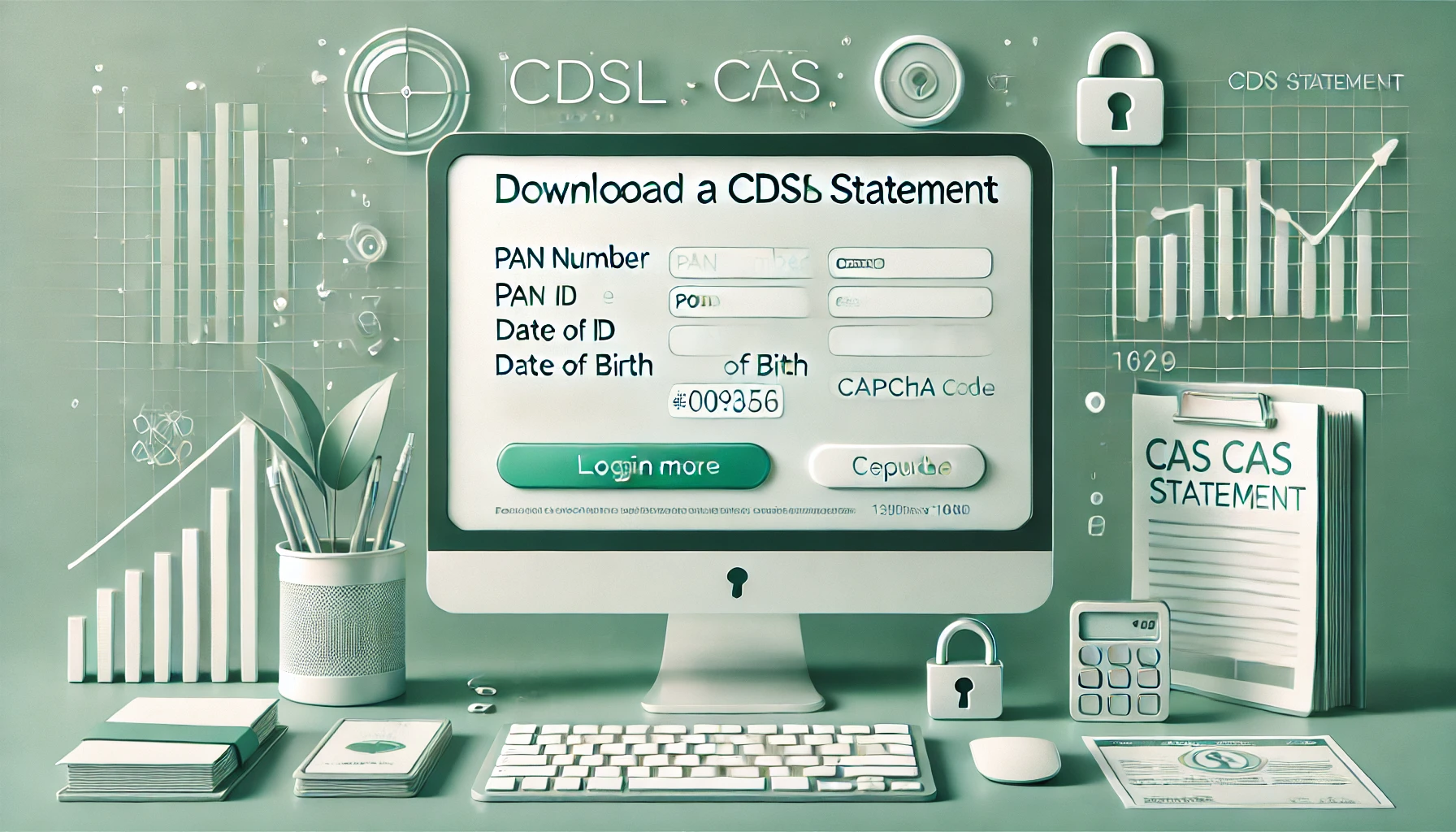NRI Investing in India: A Complete Guide to Options, Rules & Repatriation
For many Non-Resident Indians (NRIs), investing in India is both a financial and long-term life decision.
Whether it’s supporting family, building a return-to-India corpus, or diversifying beyond your resident country,
India remains a meaningful part of many global portfolios.
India also offers a few practical tailwinds:
- Currency advantage: NRIs earning in stronger currencies like USD, GBP, or AED may get more rupees per unit of foreign currency (but currency can move both ways)
- Tax features: Some options have specific tax benefits (for example, interest on NRE FDs is generally tax-free in India)
- Long-term growth potential: A large domestic economy, a growing middle class, and continued formalisation of savings and investing
But most NRIs are overwhelmed with questions:
- Can I invest from abroad legally?
- Will my investments be repatriable?
- What are my safest and most practical options for my goals?
- Are mutual funds better than FDs or real estate for my situation?
This guide gives you a clear overview of how NRI investing works in India. Each section covers the essentials and
links to deeper explainers where needed.
Can NRIs Invest in India?
Yes. NRIs can legally invest in India across multiple asset classes including mutual funds, stocks, real estate,
fixed deposits, and more, as long as the investments follow FEMA (Foreign Exchange Management Act) and RBI guidelines.
Here’s what you need to know:
Who qualifies as an NRI?
- An Indian citizen who stays outside India for 182 days or more in a financial year, or has moved abroad for employment, business, or other valid reasons
- OCI (Overseas Citizen of India) and PIO (Person of Indian Origin) cardholders are also eligible, subject to applicable rules
What accounts are required?
To invest, NRIs typically route funds through these types of bank accounts:
- NRE (Non-Resident External): Generally fully repatriable; interest is typically tax-free in India; used for overseas income
- NRO (Non-Resident Ordinary): Used for India-sourced income (rent, dividends, etc.); repatriation is allowed with limits and documentation
- FCNR (Foreign Currency Non-Resident): Time deposits in foreign currency; helps reduce currency conversion risk for fixed deposits
Choosing the right account depends on where your income is earned and where you may need the money later.
The account you use also affects taxation and repatriation.
Repatriation - Can I bring the money back?
- Funds from NRE/FCNR accounts are generally fully repatriable (principal + returns)
- Funds from NRO accounts are repatriable up to USD 1 million per financial year, subject to documentation and tax compliance
Example: If you invest in mutual funds using NRE funds, both the capital and the gains can typically be repatriated,
subject to applicable bank processes and tax requirements.
How to Start Investing as an NRI (Overview)
Setting up investments in India as an NRI is manageable, but small process mistakes can create friction later.
Here’s the high-level flow to get started the right way.
1) Open the right NRI bank accounts
You’ll typically need one or more of these:
| Account Type |
Repatriability |
Use Case |
| NRE |
Generally full |
Investing overseas income into India |
| NRO |
Limited (with rules) |
Investing India-sourced income like rent, dividends |
| FCNR |
Generally full |
Foreign currency fixed deposits (reduced conversion risk) |
Quick note: Many NRIs start with an NRE + NRO setup. FCNR is usually relevant when you specifically want foreign-currency deposits.
2) Complete KYC (Know Your Customer)
KYC is mandatory for mutual funds, stocks, and most formal investments in India. Requirements vary by platform and country,
but commonly include your passport, PAN, overseas address proof, and NRI bank details.
3) Choose how you will invest
- Directly with AMCs (mutual fund houses) where supported
- Through SEBI-registered brokers and investment platforms that support NRI onboarding
- With SEBI-registered advisors if you prefer goal-based planning over self-execution
Country-specific constraint: Not all platforms accept NRIs from every country due to FATCA and related regulations (often relevant for US/Canada). Always check eligibility before initiating KYC.
4) If you want stocks: open an NRI Demat + Trading account (PIS framework)
If you wish to invest in Indian equities, ETFs, or IPOs, you’ll typically need a Demat + Trading account under the
Portfolio Investment Scheme (PIS) framework via designated banks and SEBI-registered brokers.
- Linked NRE/NRO account (depending on the source of funds)
- Delivery-based investing is allowed; intraday trading is generally not permitted for NRIs
5) Understand taxation at a high level
Tax rules for NRIs depend on the asset type, holding period, and your source of funds (NRE vs NRO).
A key practical difference is that tax may be deducted at source (TDS) for many NRI transactions.
Important: Taxation for certain debt mutual funds changed from April 2023 onward, and “indexation” is not universally applicable now. Use the detailed guide below for current rules.
6) Set up SIP or lump sum (if investing via mutual funds)
- Mutual funds typically allow SIPs from NRE/NRO accounts
- You can invest monthly or via lump sum based on your goal
Tip: SIPs can be a simple way to stay consistent if you don’t track Indian markets frequently.
Where Can NRIs Invest in India? (Options Breakdown)
India offers a wide range of regulated avenues for NRIs, depending on whether you want long-term growth, income,
diversification, or return-to-India planning.
1. Mutual Funds
Yes, NRIs can invest in Indian mutual funds.
- Allowed via NRE or NRO accounts
- SIP and lump sum are typically possible
- Some AMCs/platforms may not accept investors from certain countries (often US/Canada) due to FATCA-related restrictions
Use our SIP calculator
to estimate how much you can accumulate over time.
2. Indian Stock Market (PIS framework)
NRIs can invest in Indian equities, ETFs, and IPOs through an NRI Demat + Trading setup under the PIS framework.
- Requires: Demat + Trading account + linked NRE/NRO bank account
- Intraday trading is generally not permitted for NRIs
- Can invest in listed equities and ETFs, subject to applicable rules
Common question: “Can NRIs use Zerodha or Groww?”
Many brokers offer NRI services, but onboarding and features can vary based on your country of residence and documentation requirements.
3. Real Estate
A favourite among NRIs.
You can buy:
- Residential properties
- Commercial properties
You cannot buy:
- Agricultural land
- Farmhouses or plantation properties
Rental income and capital gains are taxable in India. Repatriation is possible after paying due taxes and completing documentation.
Liquidity, paperwork, and repatriation timelines are often underestimated, so plan this asset class carefully.
4. Public Provident Fund (PPF) - Not available to open after you become an NRI
- If you opened a PPF before becoming an NRI, you can continue it till maturity (as per applicable rules)
- New PPF accounts can’t be opened by NRIs
Interest is generally tax-free in India, and maturity proceeds are generally non-taxable in India.
5. National Pension Scheme (NPS) – Allowed (with conditions)
- NRIs can open NPS accounts, provided you are an Indian citizen with a valid Indian passport
- KYC is typically completed via NRE/NRO account documentation
NPS can be relevant for retirement-focused NRIs, but it has rules around withdrawals and taxation. Treat it as a long-term product.
6. Fixed Deposits (FDs)
- NRE FDs: Generally tax-free interest in India; typically fully repatriable
- NRO FDs: Taxable in India; repatriation is allowed with limits and documentation
You can also use FCNR deposits to keep the deposit in your foreign currency and reduce conversion risk.
Common Mistakes NRIs Make
-
Using a resident savings account after becoming an NRI:
NRIs should update their banking status and convert old resident accounts to NRE/NRO as applicable. Continuing to use resident accounts post-migration can violate FEMA rules.
-
Ignoring DTAA and TDS mechanics:
Not considering DTAA and how TDS is applied can lead to unnecessary tax deductions and refund delays. Always declare income correctly in both jurisdictions.
-
Choosing platforms that don’t support your country:
Some platforms have restrictions based on country of residence (often for US/Canada NRIs). Check eligibility before starting KYC.
-
Buying high-cost products without comparing total costs:
High-cost insurance-linked products and overpriced properties are commonly mis-sold. Prefer transparent products and clean cost disclosures.
-
Letting India investments run on autopilot for years:
NRIs often end up with scattered holdings. A yearly review helps align allocation, tax efficiency, and liquidity with goals.
-
No nominee or POA setup:
Missing nominee/Power of Attorney (POA) planning can create delays during emergencies, especially when family is in India and you are overseas.
Want a quick NRI portfolio structure check?
If you’re an NRI with money spread across India and abroad, the real challenge is rarely “finding the best product”.
It’s structure: the right accounts, repatriation readiness, tax friction points, and goal alignment.
You can
request an NRI portfolio structure check
and get a clean action list to organise your India-side investments.
Final Thoughts
India can be a strong component of an NRI’s long-term plan, but the outcome depends heavily on structure.
The account you use, how repatriation works, and how taxation is applied often matter as much as the returns.
Keep three things in mind:
- NRI investing comes with specific rules and documentation
- Your account type (NRE vs NRO) affects tax and repatriation outcomes
- Small compliance mistakes (like using a resident account) can create avoidable legal and banking issues
With a clean structure and long-term discipline, NRIs can participate in India’s growth without compromising compliance or peace of mind.
Explore our NRI Investing Series
If you want to go deeper, here are focused guides that cover each topic in detail:
- NRE vs NRO vs FCNR: which account fits which goal?
- NRI KYC checklist: documents, CKYC, and video KYC
- NRI mutual funds: onboarding, FATCA constraints, and taxation basics
- NRI equity investing: Demat setup, PIS route, and what’s allowed
- NRI taxation in India: TDS, DTAA, capital gains, and ITR refunds
- Repatriation for NRIs: NRO to abroad, documents, limits, and common errors
- NRI real estate in India: rules, taxes, repatriation, and practical pitfalls
- Returning to India (RNOR): what to plan before you move back
- Nominee, POA, and estate basics for NRIs: avoid family friction
FAQs
1. Can NRIs invest in mutual funds in India?
Yes. NRIs can invest in mutual funds via NRE or NRO accounts, subject to platform and country-specific onboarding rules.
2. Can I invest in SIPs while staying abroad?
Yes. SIPs can be set up from NRE/NRO accounts. Ensure the bank mandate and KYC are completed as required.
3. Can NRIs open a Demat account?
Yes. NRIs can open an NRI Demat + Trading account under the PIS framework via designated banks and SEBI-registered brokers.
Intraday trading is generally not permitted; delivery-based investing is typically allowed.
4. Can NRIs invest in PPF or NPS?
PPF: NRIs cannot open a new PPF after becoming an NRI. If opened before becoming an NRI, it can typically continue till maturity (as per applicable rules).
NPS: Allowed for Indian citizens with a valid Indian passport, subject to NPS rules and onboarding requirements.
5. What are the tax rules for NRIs investing in India?
Tax depends on the investment type and holding period. A practical difference for NRIs is that tax may be deducted at source (TDS) for certain transactions.
DTAA may help in some cases, and refunds can be claimed via ITR filing if excess TDS is deducted.
Disclaimer: This article is for informational purposes only and should not be considered as legal or financial advice.
NRI investors should consult their respective investment and tax advisors and ensure compliance with both Indian and local laws before investing.




